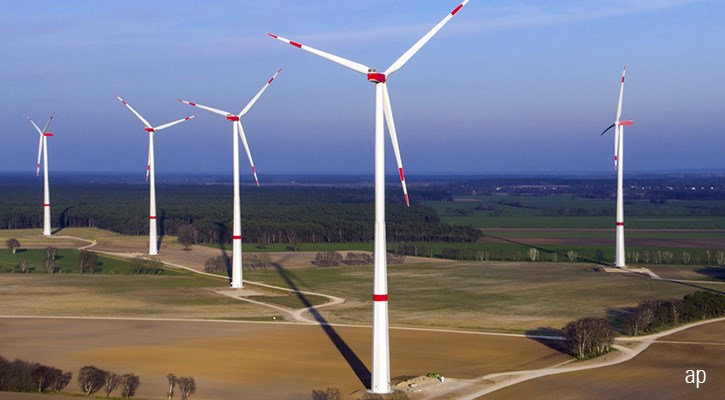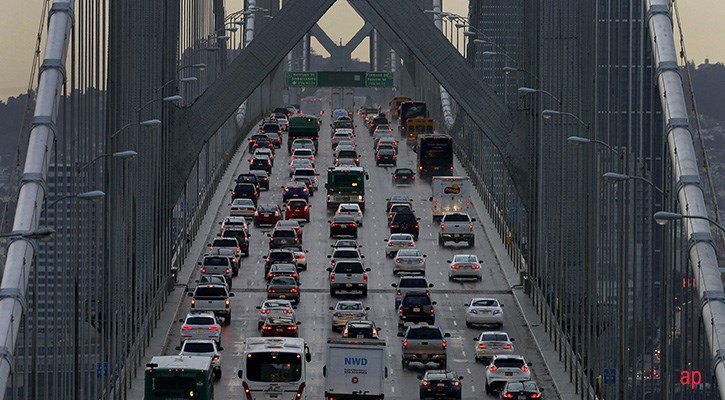
This latest Budget was light on new announcements relating to the Government’s green targets. The Chancellor, Rishi Sunak, briefly mentioned a £107m boon for offshore wind in Teesside as part of a wider discussion on infrastructure. But then he swiftly moved on. In fairness, last week the Government had already laid out a detailed programme as part of its Net Zero Strategy (NZS). Let’s look at at the some of the UK’s carbon commitments, short and long term.
Driving and Flying
With COP26 about to start in Glasgow, you could argue the Budget was not very green at all. Another freeze in fuel duty rises, as well as cuts to domestic airline taxes, reinforce the status quo for drivers and frequent flyers. AJ Bell investment director Russ Mould says these policies “hardly encourage habitual drivers to change their behaviour”, but adds the Government needs to balance its long-term environmental targets with short-term economic pragmatism. Essentially, its keen to encourage workers back to their offices after lockdowns, and drivers have already had to deal with petrol shortages and rising pump prices in recent weeks.
GAM investment director Charles Hepworth highlights the issue of pragmatism too. “While it might appear strange that Sunak has pushed the green agenda so strongly ahead of the COP26 summit next week and then cut air passenger duty for UK domestic flights while imposing an increase in duty for long haul flights, it is welcome news to the regional air operators,” he says.
Shares in airlines like easyJet, which run domestic UK flights, rose on the news. One potential and confusing caveat is that taxes on ultra-long haul flights, above 5,500 miles, have been raised. That will add around £100 to the cost of an economy flight to Asia and Latin America.
For Sahil Mahtani, strategist at fund manager Ninety One, these measures don’t go far enough.
“The Treasury is not allocating enough money for the looming Green transition. Capex underspending has been a chronic issue for the Treasury, even as it acknowledges that £55bn per year in investment is needed to get to net zero,” he says.
NZS and NDCs
Published last week, The Government's 367-page Net Zero Strategy (NZS) document explains how the UK can reach the 2050 target. Sunak namechecked the funding involved in yesterday’s speech, saying that £30 billion was being put towards reaching it, and that it was an "ambitious" framework to create the "green industries of the future."
In fact, the NZS makes £26 billion of spending commitments as part of what it calls a “long- term pathway towards net zero”. UK governments past and present have been in the habit of announcing money previously announced as “new” and this is no exception. More than half of this £26 billion is new money. Certain initiatives, such as phasing out petrol and diesel cars from 2030, are known to the public already, however.
The NZS document also says carbon emissions will be reduced across the UK economy, in transport, buildings, hydrogen and power generation – as well as across green jobs and investment. In the document's foreword, Boris Johnson talks about making the UK “the birthplace of the Green Industrial Revolution”. Key initiatives include electric vehicles, renewable power generation (including 5GW of hydrogen production by 2030) and the much-publicised £5,000 for home owners to replace gas boilers with heat pumps. There’s also a target for creating 30,000 hectares of new woodland a year in England (see this article for more on timber’s investment potential). Among these measures are various commitments to creating "green jobs", which the Government wants to number in the tens of thousands.
Recycled Policy?
The NZS didn’t emerge out of thin air. It builds on the “Ten Point Plan for a Green Industrial Revolution” launched in November 2020, and at 38 pages, it sticks to the key points laid out in that title. Key pillars include: offshore wind, hydrogen, nuclear power, zero emission vehicles, public transport, planes and ships, buildings, carbon capture, protecting the environment and finally, green finance. Green finance was the subject of our article on bonds, which the Government hopes will fund a big chunk of the net zero plans (£16 billion has already been raised by two bond issues). It is significant that “offshore wind” is point one in the 10 point plan: Britain, along with Germany and Denmark, has been an early backer of this form of renewable energy. As our analysts say in their coverage of Danish wind giant Orsted, those subsidies are likely to be phased out in the coming decades.
Boilers and Cars
The boiler replacement plan generated headlines, but also some anxiety. Will people be forced to switch to greener heating alternatives? And, at a point where households are feeling the squeeze of inflation, can they even afford it? The same nervousness goes for plans to ban the sale of petrol and diesel cars. The Government’s response shows that its strategy will be based more on carrot than stick. “We will work with the grain of consumer choice: no one will be required to rip out their existing boiler or scrap their current car," it said.
In both the NZS and the 10 Point Plan, the government acknowledged 2050 is a long way off. There are many staging posts on the way. The UK is also tied into international climate pacts like the Paris Agreement, which monitor Nationally Determined Contributions (NDCs), effectively an emissions audit. The Climate Change Act of 2008 established "carbon budgets"; these aren't annual political events in Parliament but a legal restriction on carbon emissions, running as far out as 2037 (the sixth carbon budget). They mean that if certain sectors, such as aviation, produce more carbon than others, the deficit needs to be made up elsewhere to 'balance' the carbon books. As my colleague Dan Lefkovitz explains, setting a net zero target can often be used by companies and governments as a subsitute for practical action. At the moment, it would appear NZS is more the former than the latter.












:quality(80)/cloudfront-us-east-1.images.arcpublishing.com/morningstar/6BCTH5O2DVGYHBA4UDPCFNXA7M.png)










